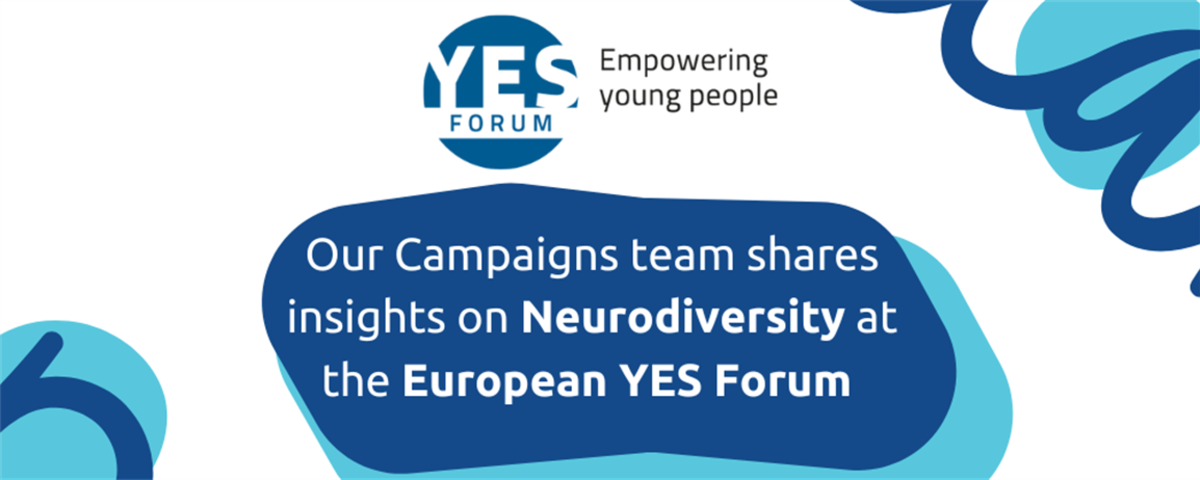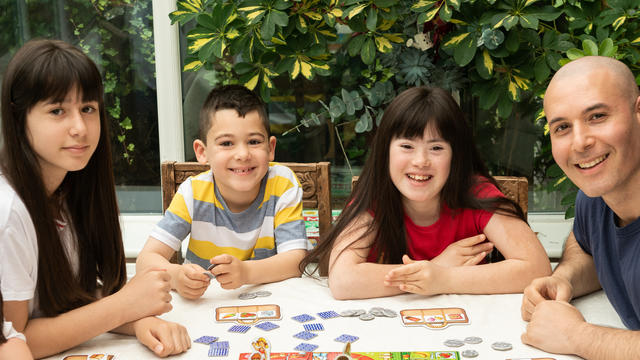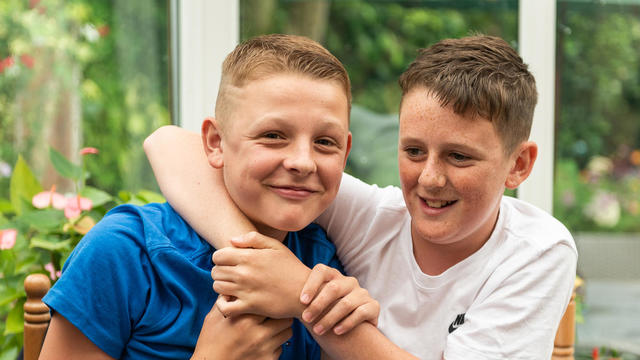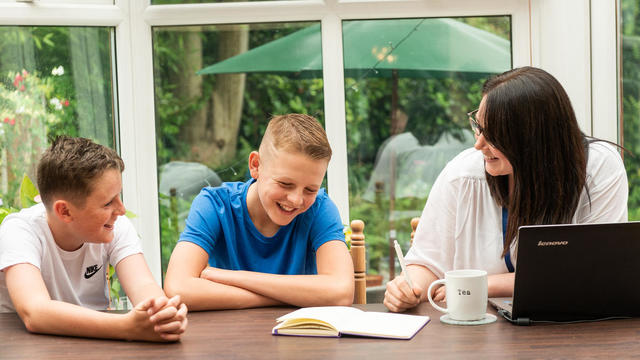Our campaigns team shares insights on neurodiversity at the European YES Forum

On 16 July, I had the pleasure of presenting at the YES Forum’s Learning Lab on “Neurodiversity from a Female Perspective”. This international event brought together practitioners, youth workers, social workers, and policy advocates from across Europe to share experiences, spark dialogue, and learn from one another.
I was honoured to speak on behalf of Together Trust and showcase how we’re involving neurodivergent young people in shaping the future of policy, care, and education in the UK.
Putting Participation at the Heart
My presentation focused on how we meaningfully involve young people in our policy and campaigning work at Together Trust. Too often, the voices of disabled and neurodivergent young people are left out of conversations that directly affect their lives, especially girls, whose needs can be misunderstood, misdiagnosed, or overlooked entirely.
We shared examples from three key projects:
-
Our long-term participation project, where we work directly with young people, using creative, trauma-informed, and relationship-based methods to explore key issues like school experience, mental health, and accessibility.
-
The What Comes After Education? research with National Star, which used peer-led, inclusive survey tools (like VideoAsk) to explore young people's experiences of transitioning into adulthood.
-
Our emerging work on Emotionally Based School Avoidance (EBSA), where we are actively considering how gender, neurodivergence, and emotional needs intersect, and how this is reflected in service gaps.
Why a Gendered Perspective Matters
Many neurodivergent girls mask their struggles, internalise distress, and face late or missed diagnoses. Without careful, inclusive practices, these young people continue to be excluded or misunderstood.
At Together Trust, our services including specialist schools, residential homes for children in care, respite services, and wider community support all play a vital role in amplifying neurodivergent voices. Across these diverse services, dedicated teams are doing amazing work to create spaces where neurodivergent and disabled children and young people are truly heard and included.
Our Women Together staff network is bringing women’s lived experiences to the forefront, identifying how we might better support girls and women using our services. From conversations about women's health to reflections on staff training, this internal network is helping shape more compassionate practice across Together Trust.
Training, Trust and Cultural Change
We also discussed the importance of staff training on female neurodivergence. Building a shared baseline of understanding is essential if we’re to reduce the gaps in how support is delivered across services. We need system-wide awareness if we’re to embed inclusive, trauma-informed and gender-aware approaches in everything we do.
Sparking Conversation Across Europe
What followed the presentation was a rich Q&A and group discussion where colleagues from across Europe shared their own reflections, challenges, and ambitions.
It was incredibly motivating to hear how others saw Together Trust’s work as a model to learn from and to feel that sense of solidarity in striving for inclusion.
We explored questions like:
-
What helps or hinders participation in your country?
-
How do gender and neurodivergence interact in your context?
-
What small changes could shift culture and practice in your organisation?
These conversations reminded me just how powerful shared learning can be. Even when working in different countries or systems, we are often facing the same fundamental questions, how to truly listen, how to include those on the margins, and how to turn insight into impact.
From Words to Action
In England, we’re seeing a mixed picture. The charity and voluntary sector is leading the way in creating spaces for youth voice and participation. But national policy often feels out of step. Consultations, like the scrapped 10-Year Mental Health Plan or the rushed Welfare Reform Bill, undermine trust and send the wrong message to young people about the value of their input.
If we want to centre neurodivergent voices, and especially those of girls, we must go beyond tokenism. That means embedding participation into how services are designed. It means training staff to recognise hidden needs. Notably, t means creating culturally safe spaces, both for the young people we support and for the staff who work with them.
Final thoughts
Being part of this event left me feeling hopeful. The commitment, creativity, and care shown by those in the room, was inspiring. Inclusion isn’t a tick-box. It’s an ongoing practice, built on listening, trust, and action.





